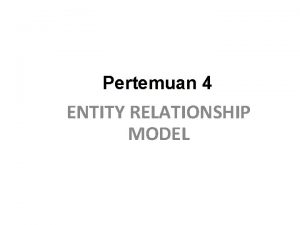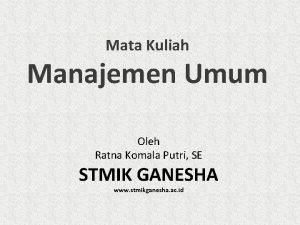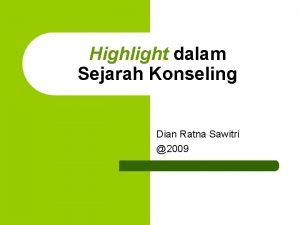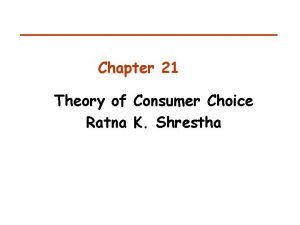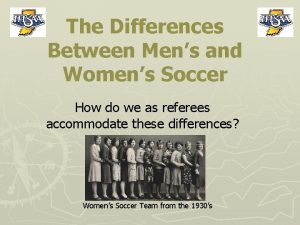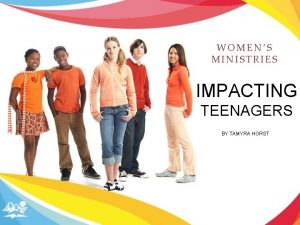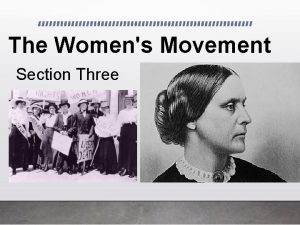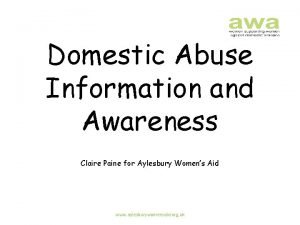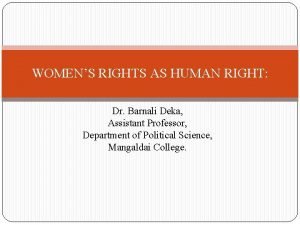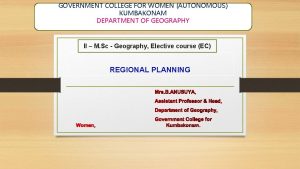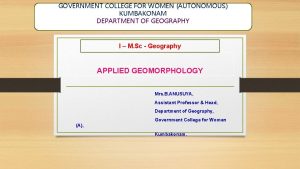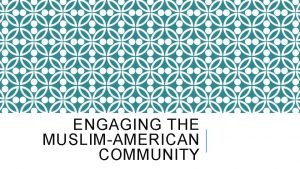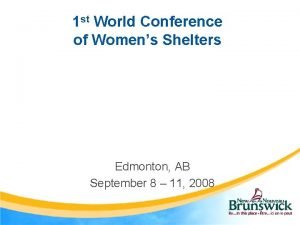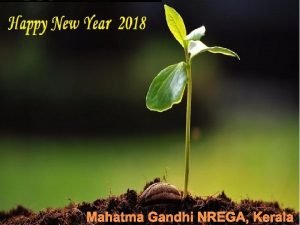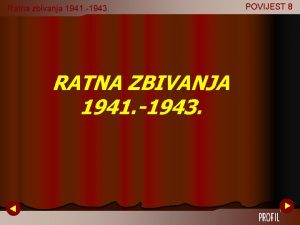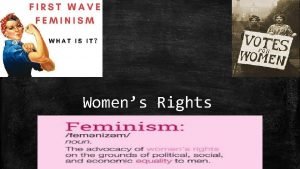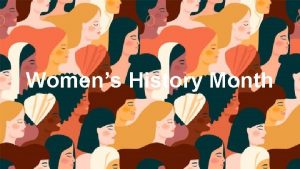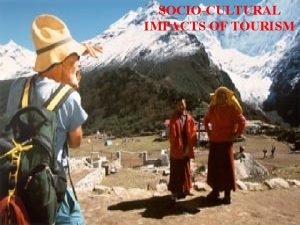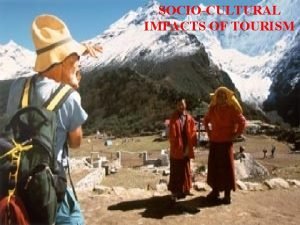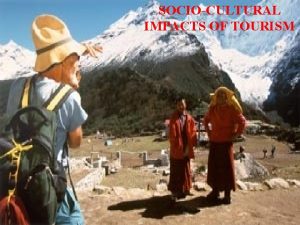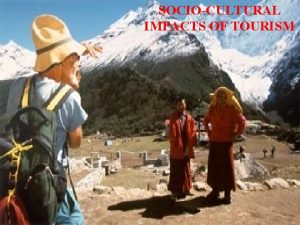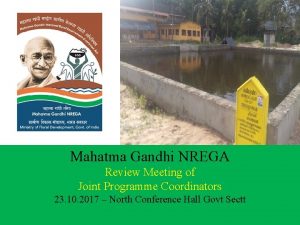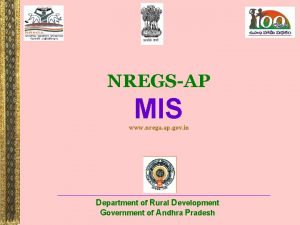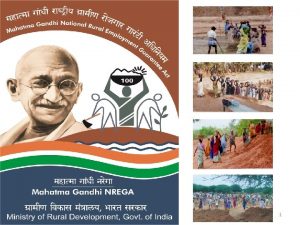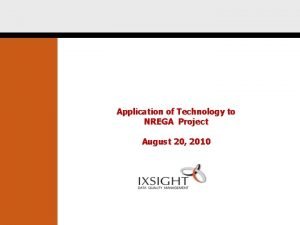Examining the NREGA Womens Participation and Impacts Ratna

















- Slides: 17

Examining the NREGA: Women’s Participation and Impacts Ratna M. Sudarshan Institute of Social Studies Trust New Delhi Institute of Social Studies Trust, New Delhi

Objectives • NREGA data shows varying levels of women’s participation across states • Objective to understand ‘given the context, the underlying opportunities and constraints, what initiatives could improve women’s levels of participation and/ or the impact of such participation on their well being’ Institute of Social Studies Trust, New Delhi

Choosing a sample • Study the outliers – states with very high and very low participation by women • Kerala, Himachal • State with high poverty levels and high participation - Rajasthan • To identify: what works? ‘good practice’ in terms of desirable wider impacts Institute of Social Studies Trust, New Delhi

UR IP DU NA JA A ST HA AN N DH KE R RA A PR LA AD E GU SH J KA ARA RN T AT A M K AD MA A HY NI PU A CH PRA R HA DE TT SH IS JH GAR A H M RKH AH AN AR AS D HT R PU A NJ AB OR I M SSA IZ OR AR UN AM AC HA ASS L P AM RA DE HA SH UT R TA YAN RA A KH NA AN GA D LA ND W SIK ES KI M T BE NG AL UT B T HI AR IH AR M AC PR JA A M HAL DE M PR SH U AN AD E D KA SH SH M IR RA TR IL TA M Level of women’s participation (as on November 2007) 90 80 70 60 50 40 30 Series 1 20 10 0 Institute of Social Studies Trust, New Delhi

Methodology of data collection • Choice of state and district based on secondary data • choice of villages based on advice of local officials and other privileged observers • Methods include field visits to work sites and interviews with ‘mates’; interviews with all stakeholders (including officials, villagers, women who participate in NREGA and women who have not participated, local NGOs) – to permit triangulation • Review of district records • Review of any available reports, articles or studies on the areas being studied Institute of Social Studies Trust, New Delhi

Work completed up to June 2009 • Kerala: meeting with NREGA programme Coordinators in Palakkad • Fieldwork in Malampuzha and Attapady blocks of Palakkad district • Himachal: meeting with District Commissioner, and other officials at Nahan, Sirmour • Fieldwork commenced Institute of Social Studies Trust, New Delhi

Key Findings: Kerala • High participation by women • Wages earned on NREGA worksites at minimum wage of Rs 125 well above market rate for women (70 -80): increase in no of women willing to work + preference for NREGA work over agriculture • Not attractive for men for whom market wage is over Rs 200; very limited male participation Institute of Social Studies Trust, New Delhi

Key Findings: Kerala • Management of worksites entrusted to Kudumbashree (state poverty eradication mission) • Area Development Supervisor (women) maintain muster rolls, etc. Typically educated, between 3245 years, attends a minimum of 10 meetings a month. • State decision to ensure payment of minimum wage – measurement of ‘work completed’ reportedly lenient (contrast with Rajasthan for example, similar to Himachal) Institute of Social Studies Trust, New Delhi

Key Findings: Kerala • Payment into bank accounts – takes time, hence daily household needs now being met by men’s earnings; savings in bank; targeted spending; • Two reactions to shortage of labour for agriculture: creation of NREGS calendar by panchayat; or forcing upward revision of wages/ also some reduction in cultivated area Institute of Social Studies Trust, New Delhi

Key Findings: Kerala • Who does not participate – Young women with young children (< 30 years) – Tribal areas – Attapady – difficult to mobilise into groups, distance to site greater, activities not always suitable to area; formation of Kudumbashree adivasi only groups in progress Institute of Social Studies Trust, New Delhi

Initial findings: Himachal • High proportion of ‘local’ population own some land/ low demand for manual work • ‘Migrant but settled’ population seeks manual work but market wages for both men and women > minimum wage of Rs 100 • Demand for NREGA from groups with weak position (age, geographic location, caste/ social group, lack of household support etc) Institute of Social Studies Trust, New Delhi

Initial findings: Himachal • Puzzle: other districts in Himachal started with very low participation of women but has gone up in last 3 years; continues to be very low in Sirmour Institute of Social Studies Trust, New Delhi

Some general observations • General awareness not enough: women mobilised through Kudumbashree in Kerala; state government/ panchayat leadership in Himachal • Wider impacts on market wages, supply of women’s labour, savings, intra household allocation of responsibilities, can be observed in varying degrees Institute of Social Studies Trust, New Delhi

Some general observations • Choice of works reflects standard choices (roads and connectivity; water bodies and irrigation) • Clear evidence of ‘strong developmental state’ in both Kerala and Himachal – Himachal did not implement ‘task based measurement’ till April 2009, no system of ‘mates’ (panchayat secretary maintained muster roll) Institute of Social Studies Trust, New Delhi

Rajasthan • Previous fieldwork by ISST shows high women’s participation in Rajasthan, but very varying earnings; task based measurement; system of ‘mates’; strong role of civil society groups/ NGOs in advocating for better implementation and higher awareness; more evidence of conflict around worksites Institute of Social Studies Trust, New Delhi

Future workplan • Complete fieldwork in Himachal and Rajasthan (by end September) • Draft report (end October) • Policy workshop (Sept/ October – dates TBA) Institute of Social Studies Trust, New Delhi

Policy dissemination • Key messages regarding what influences women’s participation and what are deficits in resulting well being outcomes to be shared locally with NREGA programme officers (informal meetings) • Summary of state level findings to be presented at seminars as possible (eg. CDS in Trivandrum) • Policy workshop • Policy brief • Report/ website + papers/ publications as possible Institute of Social Studies Trust, New Delhi
 Cardinality ratio constraint
Cardinality ratio constraint Ratna komala putri
Ratna komala putri Dr ratna kurniasari
Dr ratna kurniasari Pravin varaiya
Pravin varaiya Apa yang menyebabkan ibu ratna menjadi guru idola
Apa yang menyebabkan ibu ratna menjadi guru idola Dian ratna sawitri
Dian ratna sawitri Chapter 21 the theory of consumer choice
Chapter 21 the theory of consumer choice Differences between men's and women's soccer
Differences between men's and women's soccer Data preparing exploring examining and displaying
Data preparing exploring examining and displaying Needs of adolescence
Needs of adolescence Womens rights
Womens rights Late night womens hour
Late night womens hour Claire paine
Claire paine Womens right
Womens right Womens college kumbakonam
Womens college kumbakonam Womens college kumbakonam
Womens college kumbakonam Womens right
Womens right Womens shelter edmonton
Womens shelter edmonton
